by Jennifer Riggins
The School of Play’s Founder Portia Tung started her talk at the AgiNext Meetup by getting us up singing and acting out the infamous “Head, Shoulders, Knees and Toes.” Yes, this was a room full of adults. Not only was Portia trying to wake us up after a long day, she was doing the absurd thing of reminding us to laugh and play because she contends play is the path to a happier adulthood and workplace.
Today we share why play is important and how to play at work to not only be happier at work, but more creative, innovative and productive.
Why is play so important to great work?
Portia is often scoffed at and asked: Why should we play?
“The younger generation played less than we did when we were young and these entrepreneurs burn out faster,” she said.
Play is essential to child cerebral development, making us smarter and more adaptable.
“It shapes an organism’s brain — if you don’t play a lot before you were five, it stunts your brain by 30 percent in size.”
Portia continued that play enables sustainable social relationships and fuels creativity and innovation. All of these things are essential to surviving and thriving as a child, and also as an entrepreneur or in the modern workplace.
As my mom figure recently said:
Play is so important. Kids need to get dirty! Free play gives them the opportunity to solve problems. This translates over to school success. They need to make mistakes and then figure out what went wrong and how to fix it. We tend to want to help too much. The tower needs to fall down and be rebuilt without help.
Chris Suit, teacher of 33 years
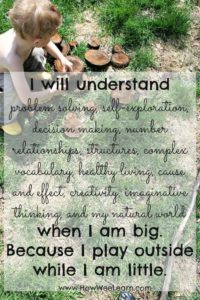
And it’s scientifically proven to stunt you if you abstain from play — at least in mice. A group of mice were split into two groups — allowed to play and not. Then a cat was released on them and the mice, of course ran into holes. After the cat was removed, the group that played elected and sent out a scout. The other group never went out again.
“True play is always risky in some way,” Portia said.
Without play, we’re missing something essential, something that not only makes us happier at work, but makes us more successful.
But how do adults benefit from playing?
- Play breaks down barriers among people.
- Play opens minds to enable learning.
- Play opens hearts to create connections.
- Play can be a source of joy.
- Play can be a source of hope.
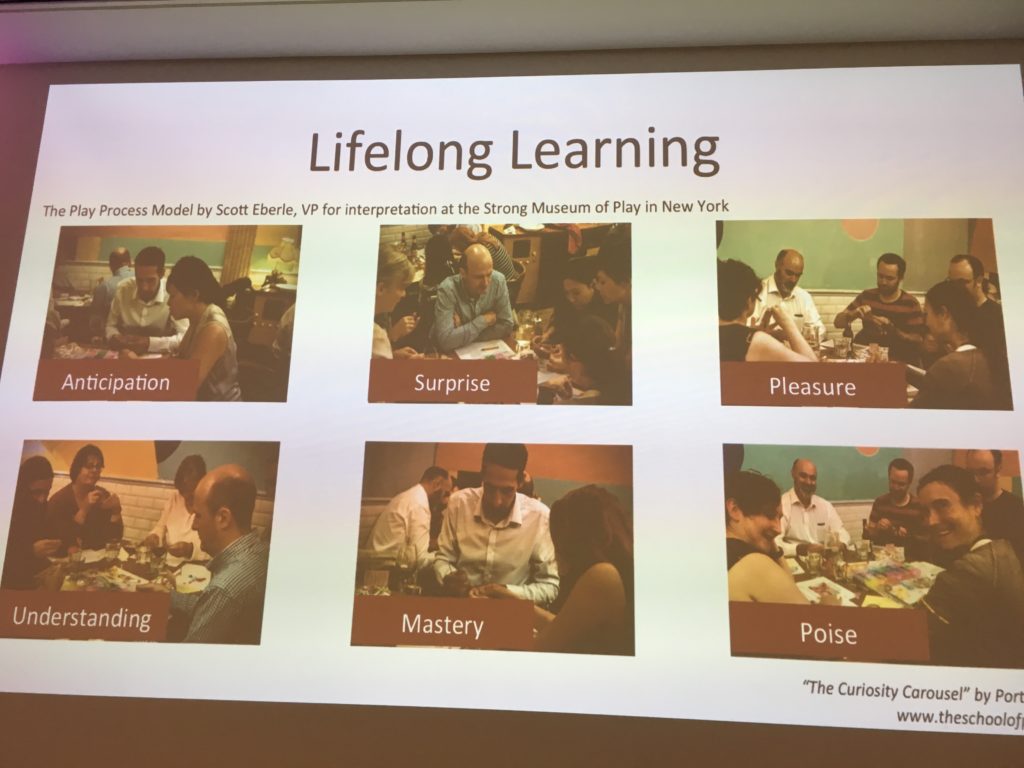
You may wonder what exactly is play anymore? According to Play by Dr. Stuart Brown, the founder of the Institute of Play, play is defined as:
- Play is seemingly purposeless and relaxes you. It’s a way to overcome the stress of a commute.
- Play is voluntary. Portia talked about how she seeks out prams in the metro to stick her tongue out and play)
- Play is attractive. Other people note the cute child.
- Time flies by when you play. The commute is faster.
- Play reduces self-consciousness. It can be a way to meet new friends.
- Play lets you become more creative. Play enables the potential for improvisation, even on the tube.
- Play leaves you with the desire to continue. Both commuting every day and continuing to play.
“How much you put in is the direct correlation to how much you get out,” Portia said.
How can we play at work? What’s the recommended dosage?
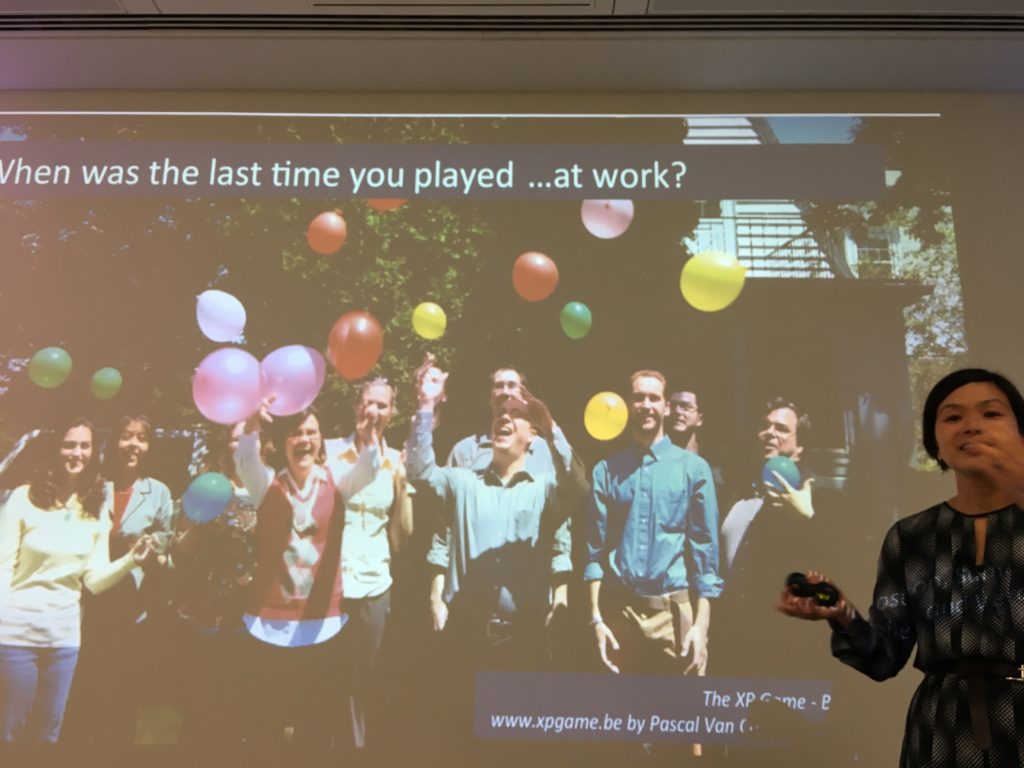
You may say work is the opposite of play, but Portia would argue that depression is the opposite of play. Ergo, if you are sad, play is an opportunity to overcome it. But specifically, play is a way to improve your work.
“Play leads to creativity and innovation which leads to inventions and growth. Work also leads to purpose and competence.”
She contends that we need both, that play is an important aspect of growth. But how exactly does play at work work?
“How often have we declined an opportunity to play? To do something different? You have to give yourself the permission to do it,” Portia said.
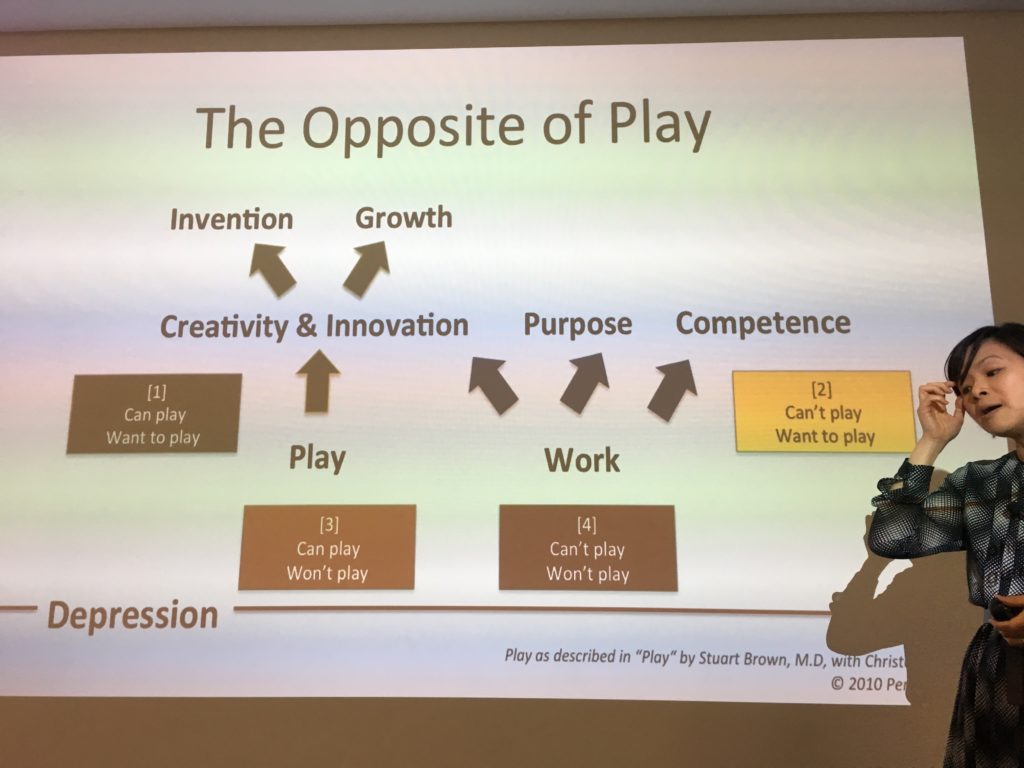
She gave us a minute to doodle on paper. Then we swapped and continued to doodle before swapping back. When asked what we thought, we realized that it not only made it more fun, but it improved the finished product.
But then she asked how many of us struggled to doodle after all those years. It’s OK, with all our adulting, we’ve forgotten how to play, but we can learn again.
“Even if you don’t like it, you just continue — overcome that barrier — that will have a lasting effect on your brain, even if only for 24 hours,” Portia continued.
As a manager, we need to encourage full play, not stifle it. For example, I jumped at the adult coloring trend, while my husband resisted, hating coloring from childhood because he was always told he did it wrong. Next time you want to create bonds between colleagues, try pair doodling instead of pair programming. You’ll have fun and maybe even create meaningful art for your office!
But, but, we’ll never get anything finished if we’re playing all the time! And you’re right, it can be far too much of a good thing.
Portia Tung’s recommended dose of play is ten to 15 minutes per day.
She further explained that one day of play can last up to a week. There’s a reason we look forward to the weekend, when we feel freer to let loose even for a little bit.
“But what if every day could be like that? Play little and often.”
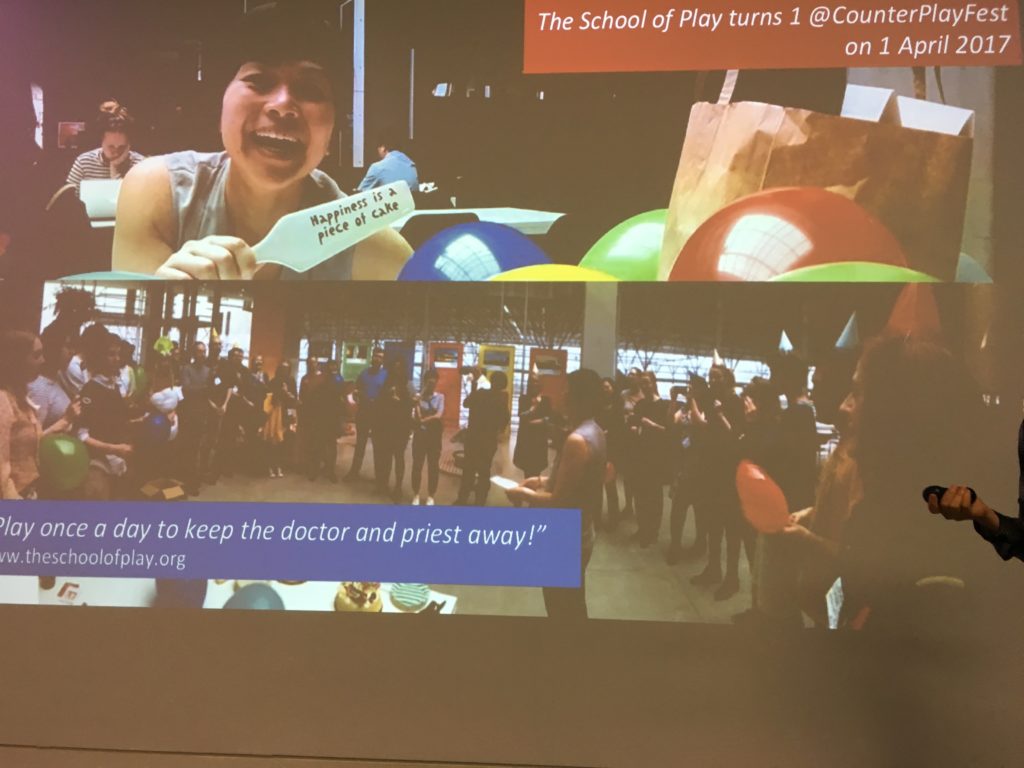
What is the future of play?
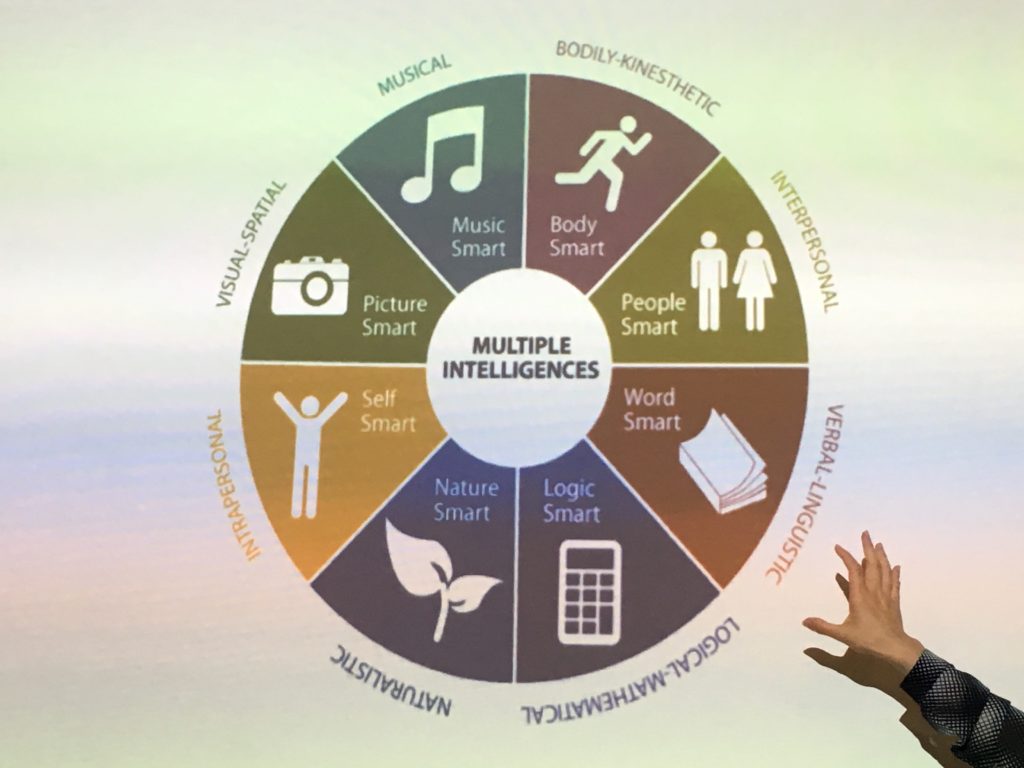
By embracing play at work — in small, but crucial doses, we are taking down barriers. And we’re actually working to increase our intelligence or Play IQ.
“We have an outdated view of human intelligence — if you weren’t good at reading, writing and arithmetic, you sucked even if you are great at sport or music. Employers still look at what uni you come from,” Portia pointed out.
We certainly are limiting the diversity and creativity of our staff by looking at arbitrary credentials that don’t always add to the role or to the collective skills and contribution of a team.
ALSO READ: GapJumpers and how to find the job you’ll love
So, it’s time to make a change.
“When you awake tomorrow, what would be some of the things you would notice that your life had suddenly become more playful?”
Portia says that adults who are truly playful are responsible, respectful and resourceful, so it’s time to get our play on!
“Play once a day and keep the doctor away!”
said Portia Tung
OK, I’m off to go play with my newborn, who is at just the right age to learn mimicry and empathy when I stick my tongue out at him!
So how do you play at work? Tell us your ways to play below and even share links to more information!

